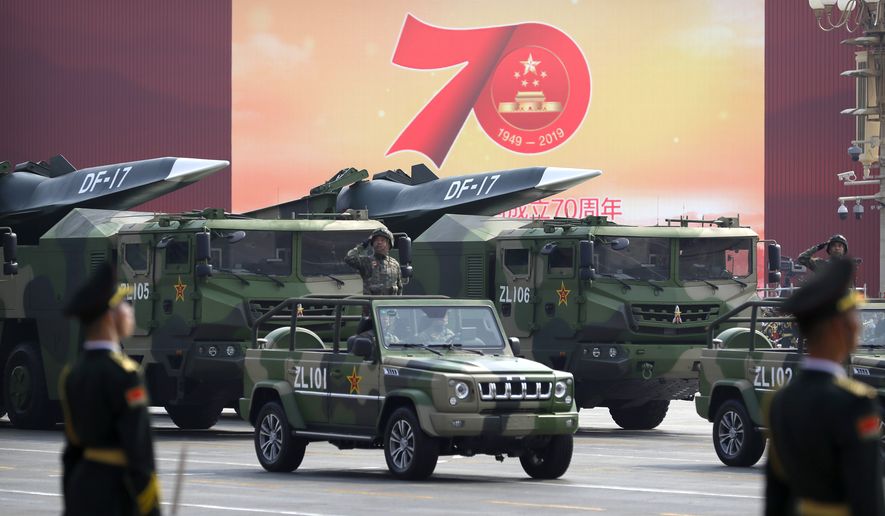NATO formally called out China’s military ambitions in a strongly-worded statement Monday, saying Beijing’s fast-growing nuclear weapons programs pose a security risk to the alliance.
“China is rapidly expanding its nuclear arsenal with more warheads and a larger number of sophisticated delivery statements to establish a nuclear triad,” the statement said. “It is opaque in implementing its military modernization and its publicly declared military civil-fusion strategy. It is also cooperating militarily with Russia, including through participation in Russian exercises in the Euro-Atlantic area.”
NATO members also expressed frustration with “China’s frequent lack of transparency and use of disinformation.”
“We call on China to uphold its international commitments and to act responsibly in the international system, including in space, cyber and maritime domains, in keeping with its role as a major power,” the statement continued.
The statement represents a diplomatic win for President Biden, who has pressed NATO allies to stand up to China’s growing military strength.
China will be among the most discussed topics during a meeting of NATO members this week at his headquarters in Brussels. Chinese leaders resisted a Trump administration push to join arms control talks, arguing their nuclear stockpiles are much smaller than those of the U.S. and Russia.
During Mr. Biden’s opening remarks at the meeting, he called out China and Russia, saying they were not acting “In a way that is consistent with what we had hoped.”
British Prime Minister Boris Johnson said Monday that China remains a concern for the NATO alliance, although it is clear some in Europe are wary of the hard line Washington is pushing against Beijing.
“I think people see challenges, they see things that we have to manage together, but they also see opportunities,” he said.
China’s Global Times, a nationalist news website with close ties to the ruling Communist Party, argued in an editorial Monday that Washington was clearly trying to recruit other NATO powers for what it called an anti-China agenda, but that the push was meeting with resistance.
“Most of NATO member states want to handle the differences with China through political and diplomatic means,” the Global Times editorial argued. “It is difficult for Washington to bring NATO’s military power to the Western Pacific. NATO will be a peripheral support force for the U.S. to exert pressure on China, but Washington definitely wants more.”
“NATO has not been hand in glove with the U.S. over the China issue. China should not allow the U.S. to strengthen the anti-China tendency in the West through NATO. We need to make more efforts to [frustrate] the U.S. plan.
• Jeff Mordock can be reached at jmordock@washingtontimes.com.




Please read our comment policy before commenting.